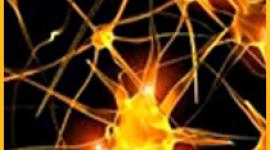Types of Depression
Here's a bit more about what clinical depression is and what it isn't, along with the forms depression can take, how it can be treated, and how it can affect family and friends of the depressed person.
What Is Clinical Depression?
Clinical Depression or Major Depression (also known as unipolar disorder or unipolar depression)
A profound, acute depressed episode lasting two weeks or longer. A person's mood can be so depressed, and he or she can be so debilitated, as not to be able to work or even go out at all. The simplest of tasks may be impossible for him or her. It can bring on the desire to injure oneself or even cause thoughts of suicide. Major depressive episodes usually have a finite duration, lasting from several weeks to several months.
Dysthymia
A slightly "milder" form of depression which lasts for a very long time--years or decades. A dysthymic person is usually functional, but feels as though he or she is simply "going through the motions;" he or she gets little enjoyment out of life. While dysthymia is less acute than major depression, it isn't much more pleasant for the person suffering from it, and requires treatment, as well.
Bipolar Depression (also known as bipolar disorder or manic-depression)
This is a form of depression marked by mood swings, from a depressed mood to an overly-elated mood known as mania. Manic states are evident when the person talks fast, displays erratic thinking, behaves impulsively--including things such as spending sprees or taking unreasonable risks, has outbursts, shows an inordinate amount of energy, takes on more work or activity than normal, plans complicated schemes, or displays grandiose notions. These manic states alternate with depression, which may be mild, moderate, or severe. The cycle of going from a manic high, to a depressed low, to a manic high, can vary greatly, even within one person; but generally this cycle is not less than a few days and not more than a few months.
Cyclothymia
As dysthymia is a less-exaggerated form of unipolar depression, cyclothymia is a less-exaggerated form of bipolar disorder. Neither the manic highs or depressed lows are as intense. And the mood-swing cycle tends to be much longer than with "ordinary" bipolar disorder; usually the cycle runs from several months to two years, and possibly even more.
One might think it is "better" to have dysthymia (for example) rather than major depression, or that bipolar disorder is "worse" than unipolar. This is not the case, however. They are all equally difficult to deal with and all four can interfere with people's lives, to the point of total disability--and all of them can, ultimately, lead to suicide. So don't make the mistake of looking at these in relative terms. Having one is just as bad as having another. They all need to be treated.
next: What Causes Clinical Depression?
~ back to Living with Depression homepage
APA Reference
Staff, H.
(2008, December 18). Types of Depression, HealthyPlace. Retrieved
on 2025, April 20 from https://www.healthyplace.com/depression/articles/types-of-depression



